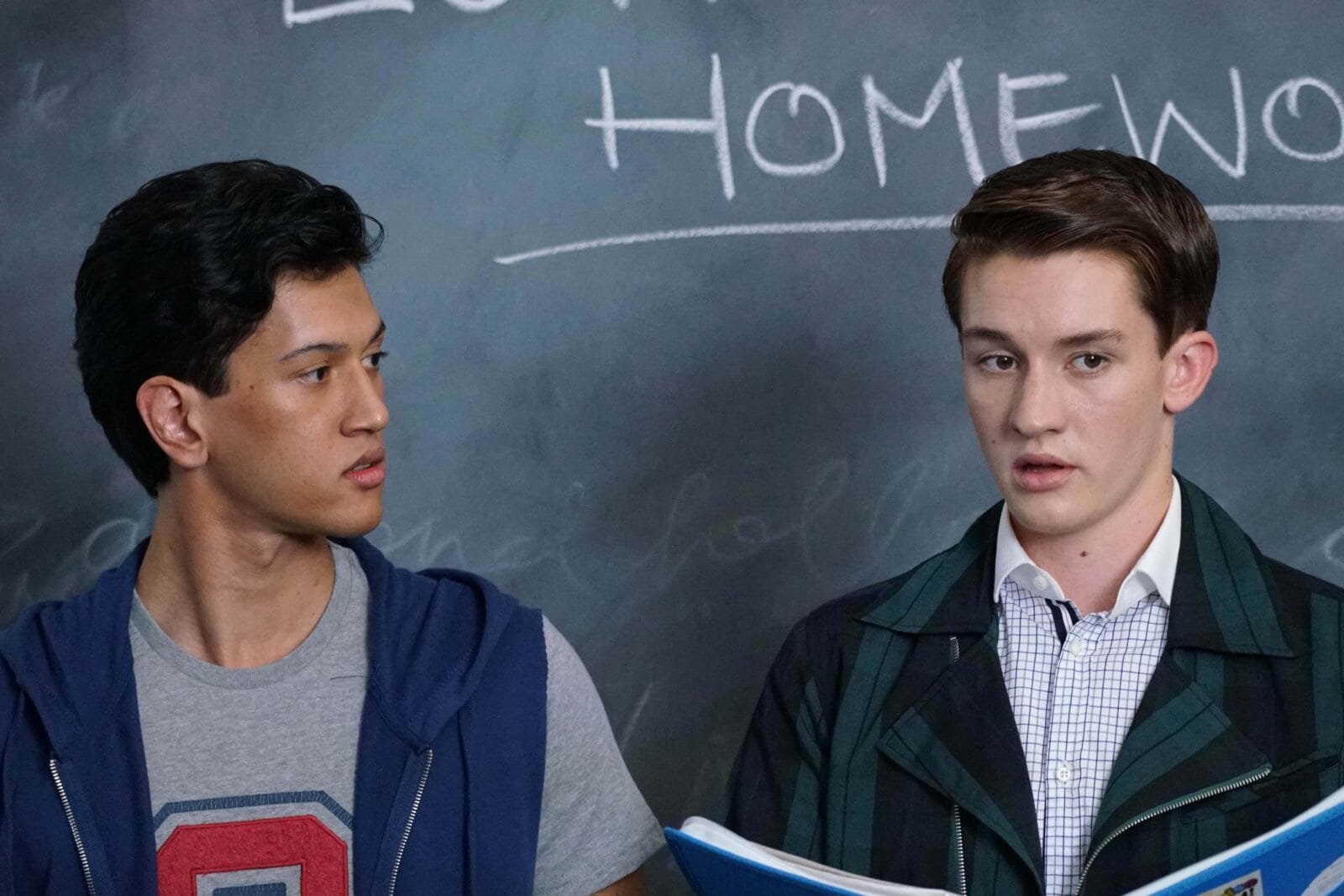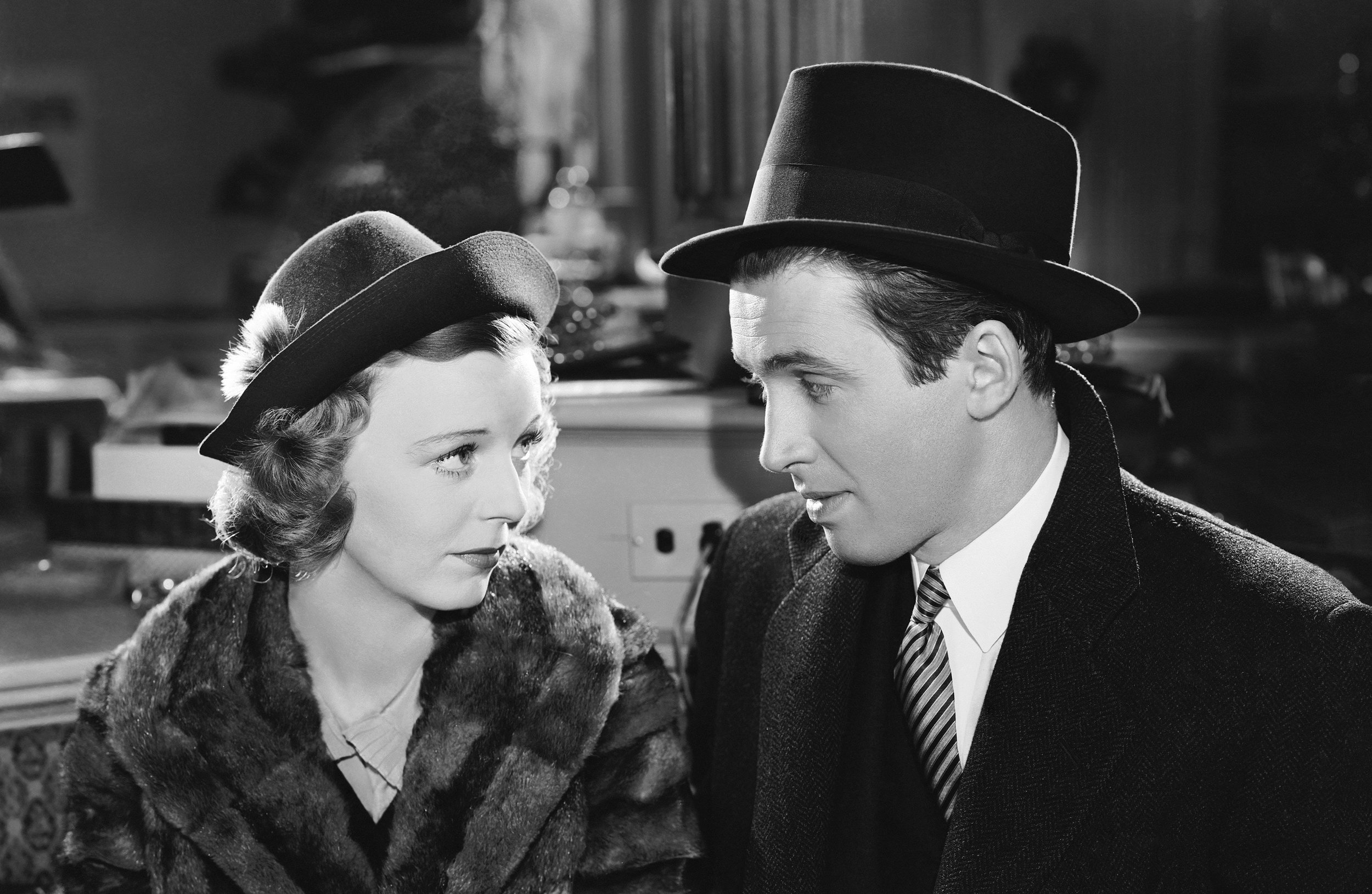Romance Week: Looks of Love
by Katharine Mussellam, Contributor
Over the years, I’ve become more and more jaded about romantic love. I think society overrates it (at least in North America), when it is no more important or wonderful than strong bonds with family or friends. All the same, romantic love is a frequent subject in films, including some of my favorite films of all time. It’s a theme that most people can relate to in some way and always will, no matter what else changes in the world. I’m no exception. Films, at least for their duration, can move me greatly and make me believe in the value of romantic love. But while the overall story of a film can be moving, some of the most moving films are those with scenes where an actor distills an experience of love into a single, often intense moment of performance. It is these moments that stay with me, and over time they have taught me about how I feel about love and the different forms it can take, as well as the many different emotions that can be at play. Here are some of my favourite moments where an actor does this in a way that has made an undeniable, unforgettable impact on me.
One of the first moments in a movie that I remember overwhelming me with its expression of love was Some Like It Hot. Sure, it’s a comedy, but it’s also about love, as well as sexuality, and gender. It was based on another film called Fanfares of Love, after all. In one scene partway through the film, Sugar Kane (Marilyn Monroe) visits her friends Daphne (Jack Lemmon) and Josephine (Tony Curtis) in their hotel room and tells them about the wonderful rich man (also Tony Curtis) she is falling in love with. As she tells the two about what is happening, she lies back on the bed and practically sighs her story. She is overwhelmed by her feelings of love, which are exciting but also, in a paradoxical way that could perhaps only make sense in the context of love, seem to make her more relaxed than any moment I have ever known. As a teenager, I was also overwhelmed by her display and what it conveyed. Marilyn Monroe has historically been desired by those who watched her on the movie screen, but I wanted to feel what she was feeling. Watching the scene now, I don’t feel that same intensity as I did back then, nor do I seek the feeling that it represents, but I still remember how this scene used to move me intensely and the way it represented love beyond what I’d seen in films before, something that someone could be overcome with, but also calmed by.
If there was another film that taught me about love as a teenager, it was The Perks of Being a Wallflower, as well as the book its based on. If Some Like It Hot stayed with me for its portrayal of love hitting you like a tidal wave of calming pleasure, Perks was about the other side of it, being overwhelmed by yearning. An image from the film seared into my mind is the look of longing in the characters’ eyes, described in the book as “a hopeful kind of sad.” Sam (Emma Watson) and Charlie (Logan Lerman) don’t get to fully express their love, and it weighs on them and almost permeates the air in scenes with the two of them alone. Sam’s face, sad but determined, as she says she wants to make sure his first kiss is from someone who loves him, and the yearning that Charlie has for her have stayed with me even as many of the story’s other details fade from my memory with time. This sets the tone for the kinds of difficult, wistful feelings of love I have been drawn to since then.
Completely different in style from the former two films, another that stands out to me in its depiction of teenage love is a moment from Emo the Musical. Towards the end of the film, high school classmates Peter (Craig Michael-Hyde’s) and Josh (Kevin Clayette) sing about their love for each other, until then unspoken, in the song “Electrified.” Each boy sings one verse about how they know what scapegoating and accusation of sin will be directed at them for being gay, but that they will willingly go through it all because of how much they love each other. Josh even says he would endure conversion therapy because he is “electrified” by Peter. The entire number is one of my favourites from the film, but one moment in particular that hits it home for me is during Peter’s verse. After singing about the conflict with his faith and others in his life, he sings that he is ultimately willing to endure the metaphorical burning at the stake they will subject him to and begins his chorus. When he holds Josh’s hands and sings the chorus’ first line, “’Cause I’m set alight by you,” his face shifts from joy, to passion, to nervousness over the course of those seven syllables. All those expressions represent so accurately the mixture of feelings one experiences in young love, especially one that is not accepted by everyone around you. Peter feels all those feelings at once, as the lyrics of the rest of the song reflect, and the Michael-Hyde’s performance expresses it so hohnestly. I don’t know if he was directed to do so, or if it just came to him naturally, but it was a perfect decision. Teenage love has been portrayed in many films, and this is one where it feels particularly real.
It's in another musical, one with a more adult exploration of love, that has shaped much of my thoughts about romantic love and moved me greatly. Hedwig and the Angry Inch, which some MovieJawn readers might already know is one of my favorite films of all time, has romantic love as one of its main themes. As such, there are many moments where gazes carry emotional weight. The most moving to recall are those between Hedwig (John Cameron Mitchell) and Tommy (Michael Pitt), made even more poignant from the fact that we know from the beginning of the film that their relationship falls apart. It is built upon a nearly instant connection they have with each other, and then built on kinship and musical creation, that makes them feel as if they were cosmically ordained to be together, two halves Hedwig believes are meant to join. The pivotal scene where, crucially, this idea comes crashing down begins with a moment of intense connection, however.
After Tommy storms into Hedwig’s trailer, upset about something his parents did, Hedwig comforts him. They exchange jokes and work on an unfinished song. When they finally find the right chord to resolve an unfinished verse, Hedwig and Tommy’s eyes connect in a combination of emotional and artistic resonance. Tommy takes Hedwig’s hand and guides her through the trailer, filled with laundry drying on clotheslines like a forest around them, while the tune of “I Will Always Love You” plays in the background. As the camera follows them through and alternates between each of their gazes, Hedwig’s face moves from curiosity and confusion to tenderness and bliss, while Tommy’s is serious, his eyes unwaveringly on Hedwig. When I first discovered the film, I watched this scene obsessively over and over, and even on some later viewings almost believed that maybe, just this once, they could stay together because of what they are feeling in the scene. The brief strength of their togetherness and the lyrics they are set to distracts them from the fact that “I Will Always Love You” is really a goodbye song, but that fact is still simmering underneath the entire time for us. This love is yearning for something that will never be, but strong all the same. Love may not always be immortal in a way that keeps people together forever, but its impact remains. There is no other half, but that doesn’t detract from love’s strength.
More recently, it has again been in a classic black and white film that I’ve found the complex feelings of love intensely and movingly expressed. It’s in another romantic comedy, The Shop Around the Corner. Watching it this past Christmas, I knew how it would end because I’d seen it before and yet I was completely taken off guard by the final scene. Our romantic leads, Alfred (Jimmy Stewart) and Klara (Margaret Sullavan), though their epistolary connection is palpable from the start, sure don’t make things easy for each other. They say the wrong things, trading barbs and generally annoying each other throughout the movie even as they start to like each other. In the final scene, Alfred even talks himself down by describing Klara’s pen pal in a denigrating way.
But everything comes together, and the moment Alfred admits his love is a quiet moment of recognition that is tender and intensely moving for me. Stewart’s actions are more powerful than any words could express, as he silently gazes down at Sullavan and places a flower on his lapel, the secret sign that he is the person she has been longing to meet for the duration of the film. In his unwavering gaze and his expression, cast partially in shadow, there is sadness, even as small smile attempts to momentarily flash across his face. He is resigned to making his feelings known, as well as the possibility that he has ruined things between them and that his feelings will forever be unrequited. His voice is soft and wistful as he murmurs “Dear friend,” his typical greeting in his letters, and it compliments his expression. He is completely vulnerable in this moment as he finally forgoes his usual defenses. There is fear and even a little sadness in the vulnerability of confessing a love one isn’t sure will be reciprocated, and those feelings all come together perfectly in this scene. They make the happiness of Klara loving him back all the sweeter, the scene all the more moving in its scope of emotion.
In all of these films, the characters’ expressions that convey something that goes beyond the words they speak. While sometimes accompanied by words, the expressions reveal even more than those words alone would do. Love is a common theme in film, but range of emotions associated with it are vast. As Frank Sinatra sings in one of many songs titled “The Look of Love,” love is “thunder, it's lightening / The gentlest breeze / It's friendly, it's frightening.” Film can get a bad rap for simplifying love, idealizing it, or using it as a cheap plot device. But while I think romantic love is overvalued in society, I think films like those that have moved me prove that love on film can be the opposite of that cookie-cutter rom-com generalization. By finding ways to pinpoint in brief moments – which are, ultimately, what a lot of life is made up of – and the many different feelings that we speak of when we tell stories about love, these films can communicate and evoke those emotions inside of you in a way that is revealing to the vastness of experience. These moments show love as something that can be contradictorily happy and sad, a flood of feelings but also sometimes calming. It’s no wonder it’s such a common theme, since there are so many facets to it. So while in real life I may wish to do away with romance, in films it can help me to get in touch with deep emotions, and I admire the power of film and acting to evoke those emotions.







